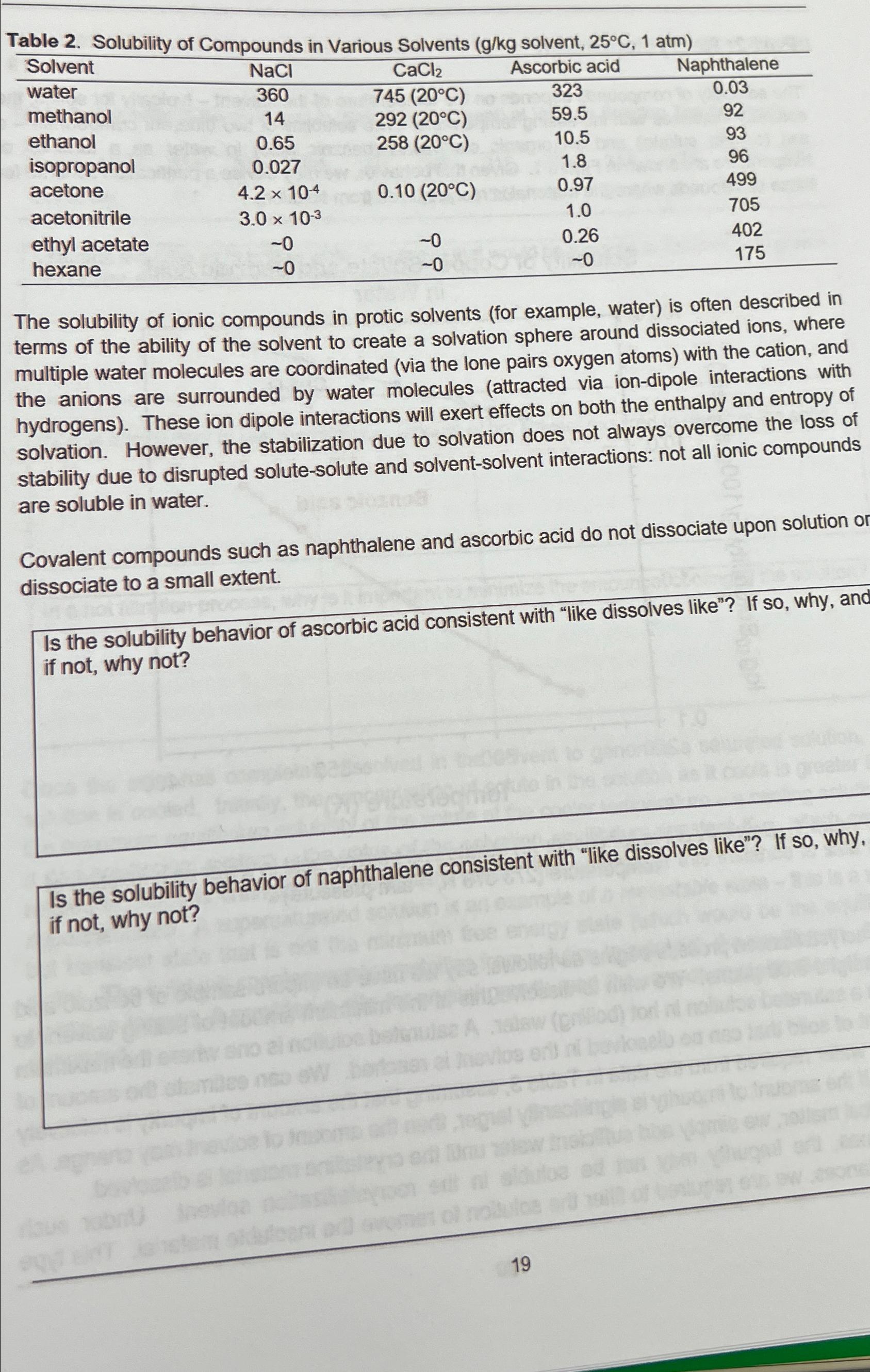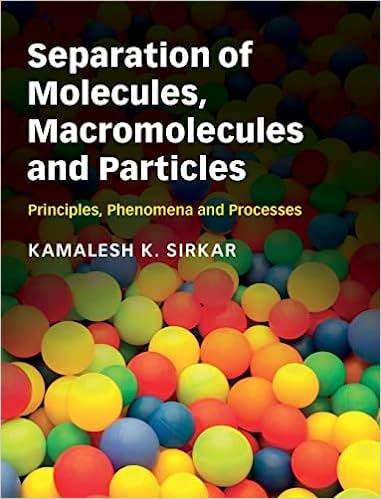Question
Table 2. Solubility of Compounds in Various Solvents ( (g)/(k)g solvent, 25deg C,1atm ) table[[Solvent, NaCl , CaCl_(2) ,Ascorbic acid,Naphthalene],[water,360, 745(20deg C) ,323,0.03],[methanol,14, 292(20deg C)
Table 2. Solubility of Compounds in Various Solvents (
(g)/(k)gsolvent,
25\\\\deg C,1atm)\ \\\\table[[Solvent,
NaCl,
CaCl_(2),Ascorbic acid,Naphthalene],[water,360,
745(20\\\\deg C),323,0.03],[methanol,14,
292(20\\\\deg C),59.5,92],[ethanol,0.65,
258(20\\\\deg C),10.5,93],[isopropanol,0.027,,1.8,96],[acetone,
4.2\\\\times 10^(-4),
0.10(20\\\\deg C),0.97,499],[acetonitrile,
3.0\\\\times 10^(-3),,1.0,705],[ethyl acetate,-0,-0,0.26,402],[hexane,-0,-0,-0,175]]\ The solubility of ionic compounds in protic solvents (for example, water) is often described in terms of the ability of the solvent to create a solvation sphere around dissociated ions, where multiple water molecules are coordinated (via the lone pairs oxygen atoms) with the cation, and the anions are surrounded by water molecules (attracted via ion-dipole interactions with hydrogens). These ion dipole interactions will exert effects on both the enthalpy and entropy of solvation. However, the stabilization due to solvation does not always overcome the loss of stability due to disrupted solute-solute and solvent-solvent interactions: not all ionic compounds are soluble in water.\ Covalent compounds such as naphthalene and ascorbic acid do not dissociate upon solution or dissociate to a small extent.\ Is the solubility behavior of ascorbic acid consistent with "like dissolves like"? If so, why, and if not, why not?\ Is the solubility behavior of naphthalene consistent with "like dissolves like"? If so, why, if not, why not?\ 19

Step by Step Solution
There are 3 Steps involved in it
Step: 1

Get Instant Access to Expert-Tailored Solutions
See step-by-step solutions with expert insights and AI powered tools for academic success
Step: 2

Step: 3

Ace Your Homework with AI
Get the answers you need in no time with our AI-driven, step-by-step assistance
Get Started


